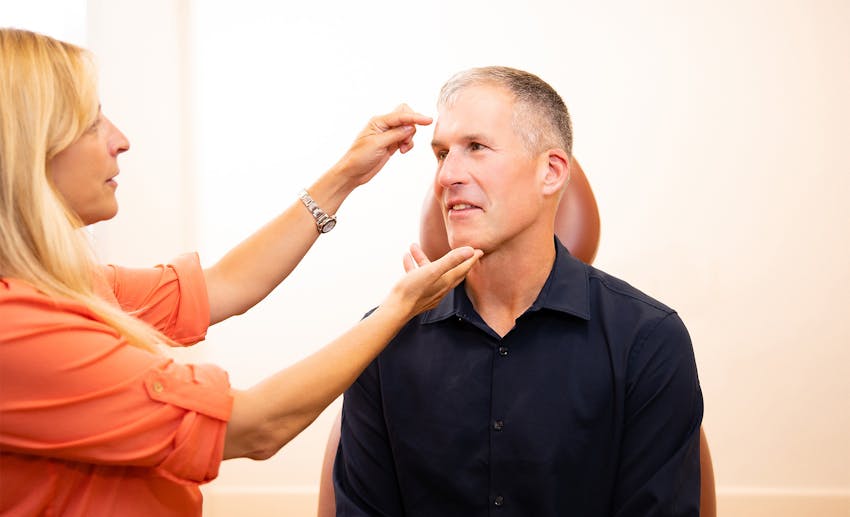Schedule a Consultation
Our job isn’t over until the patient is smiling
Contact Us
Facial paralysis, often caused by conditions like Bell's Palsy or nerve trauma, can lead to the loss of vital facial functions, including smiling.

Facial nerve repair is a critical field of expertise dedicated to restoring function and symmetry to the face following facial nerve damage. Hadlock Facial Plastic Surgery proudly offers patients expert facial nerve repair in Boston.

Our selective denervation in Boston is a surgical procedure designed to enhance the ability to smile, improve facial symmetry, and reduce facial tightness in individuals experiencing facial nerve issues.

Dr. Tessa Hadlock, a renowned facial plastic and reconstructive surgeon and facial nerve specialist, offers expertise and innovative solutions to help individuals regain confidence and enjoy a more natural facial look.

A facelift is a surgical procedure primarily aimed at addressing signs of facial aging. These issues include skin sagging, deepening lines between the nose and mouth, fat displacement, jowls, and excess neck skin and fat.

Facial palsy, characterized by the weakness or paralysis of facial muscles, often leads to facial asymmetry when the face is at rest or when making various facial expressions.

Facial palsy can bring about tightness, facial asymmetry, and involuntary muscle movements that affect every aspect of life. At the Hadlock Center for Facial Plastic Surgery, we offer a simple yet highly effective solution: BOTOX, or Botulinum toxin.

Facial palsy, often caused by nerve damage, can lead to a loss of muscle volume and tone on the affected side of the face. This soft tissue redistribution can result in facial asymmetry and functional challenges for patients.
